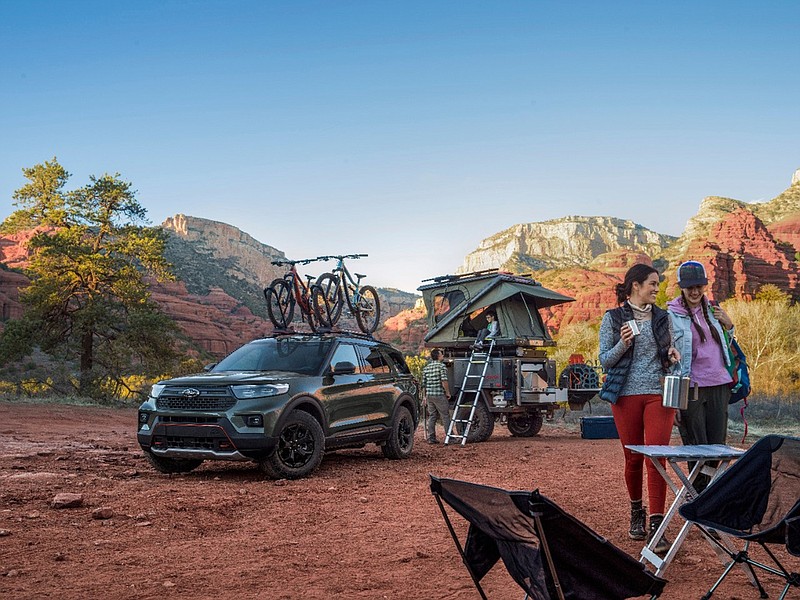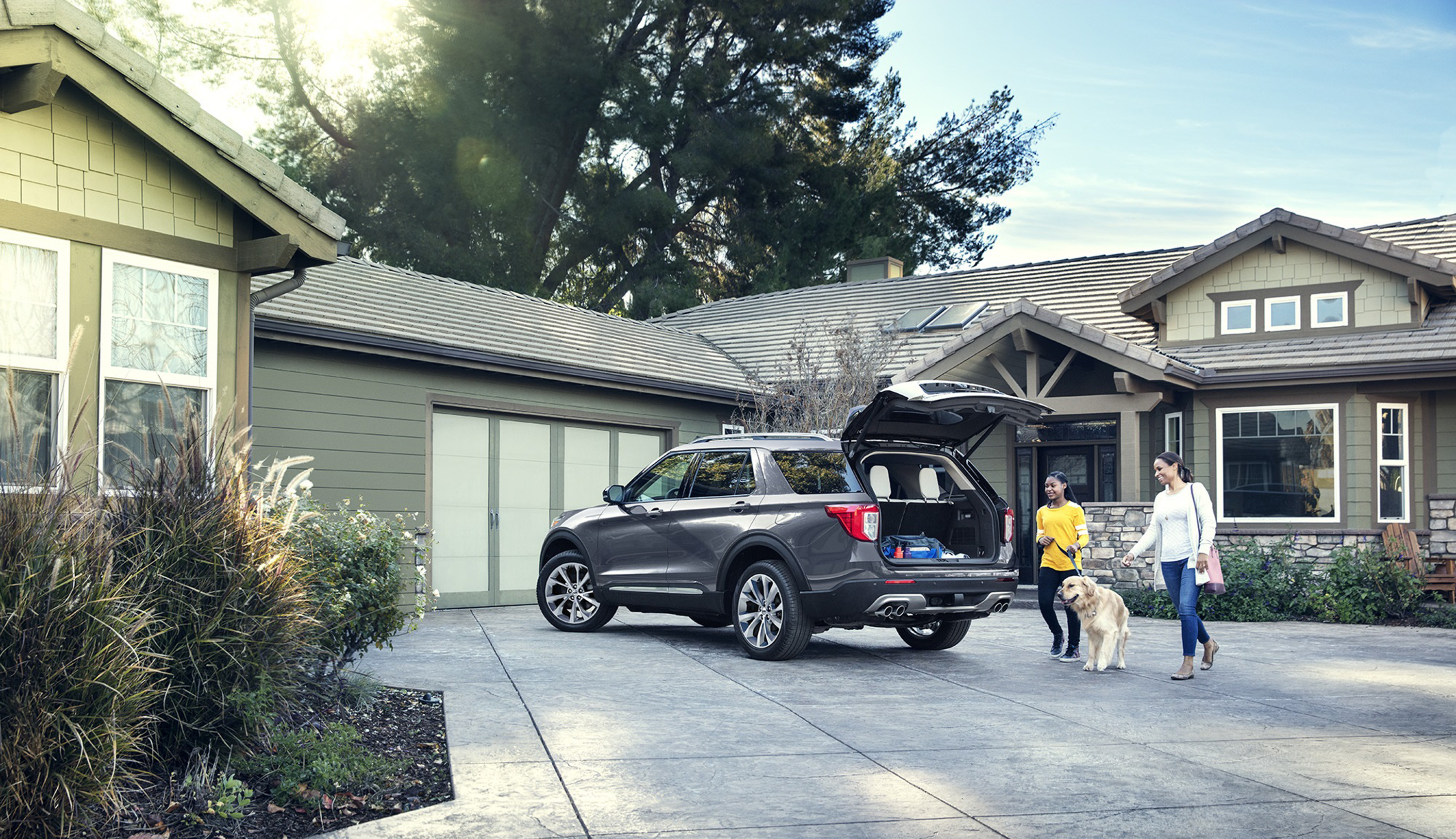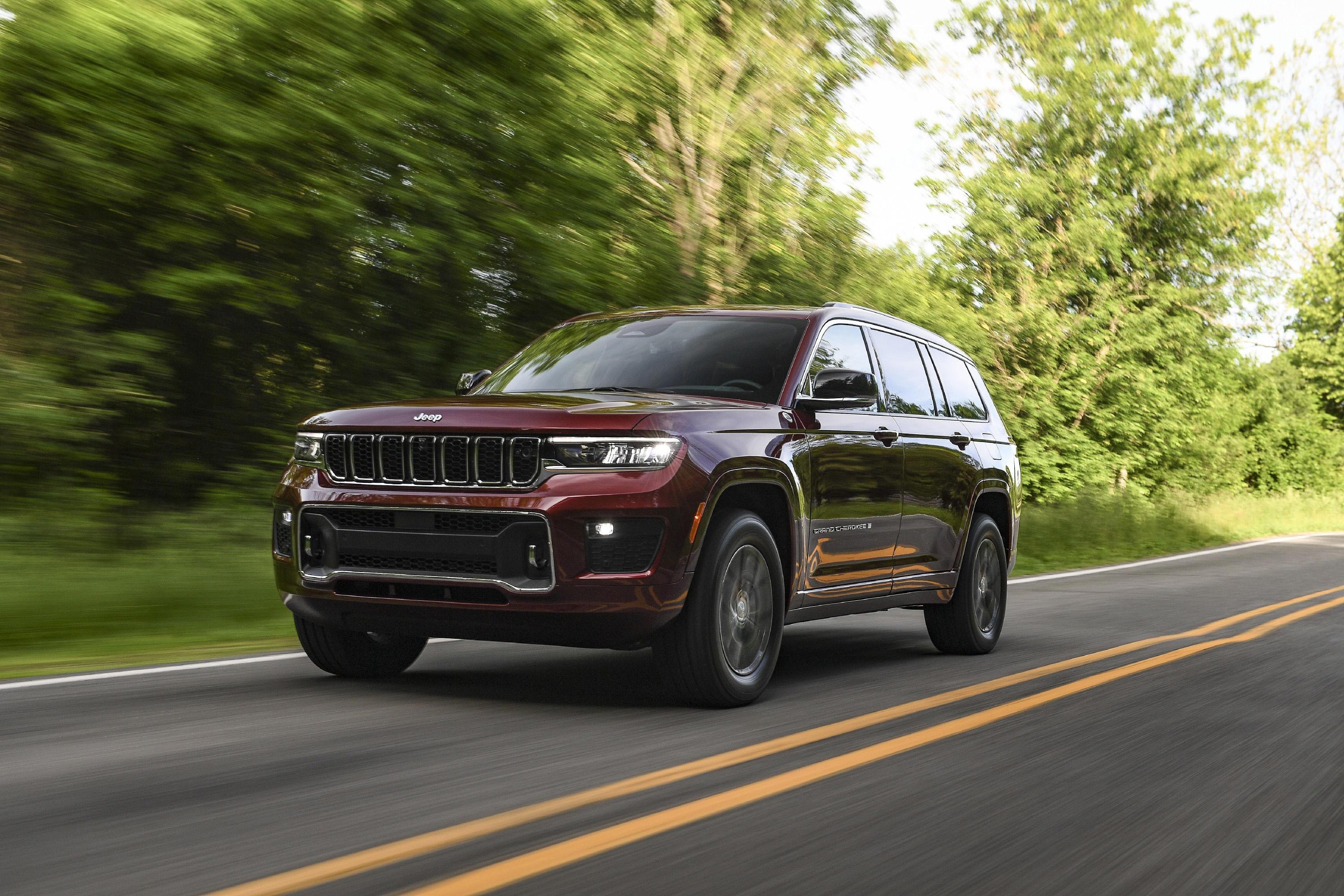As a Boy Scout, I was taught to "Be Prepared." Whether you are hiking over a mountain or preparing for a family vacation, the advice is sound. The best way to make sure your much-anticipated road trip does not become the trip from -- well, somewhere not pleasant -- is to take time to prepare.
Preparing your car
"Have your car checked by an ASC-certified technician, Blue Seal shop, or at a dealership," advised car care expert Pam Oakes, owner of Pam's Motor City in Ft. Meyers, Florida. "We think we can do it ourselves, but the money is well-spent. You don't want to find out halfway through your trip that your car has problems because you didn't take precautions beforehand."
If you decide to practice medicine without a shop, here are some things that Oakes, Consumer Reports, and AAA recommend:
n Tires: Inspect all, including the spare if equipped, to make sure they are not worn or damaged and are properly inflated. Check the tires when cold and use pressures placed in the driver's door jamb. Do not rely on ratings molded into the tire. As a take on the old penny trick, place a quarter into the tire tread with Washington's head facing you and down. If the area above his head is visible, replace tires. A blow-out is no amusement ride.
n Fluids: Check the coolant, oil and transmission fluid levels. Read the owner's manual for location and how to determine "normal" levels. While you're under the hood, fill up the windshield washer reservoir. Your car will be working hard, in the heat of summer. Low coolant levels can cause overheating and leave you stranded. If the oil is excessively dirty, change it, but oil can be added if it is low. Check the owner's manual for type.
n Brakes: Consumer Reports recommends that if you detect vibrations, grinding or pulling to one side when applying the brakes, take the car to a service center and have them checked.
n Batteries: The normal life for a battery is three to five years. Almost any auto center can check its charging capability. Also, disconnect the cables and thoroughly clean the terminals. Re-attach them securely.
n Belts/hoses: With the car off, inspect belts and hoses for cracks, blisters, soft spots and wear. Pay special attention to the big serpentine belt that runs through pulleys on the front of the engine and hoses going into the radiator. Either of those breaking will spell big trouble.
n Wipers and spray cans: Replace those windshield wiper blades that have been smearing rain. Driving on the Interstate is misery enough without being blinded by rain. Many new cars do not have spare tires and instead rely on "fix-a-flat" cans to seal punctures. Grab a new can while purchasing blades.
If your car has not been driven in a while, as is common with sports cars and RVs after winter months, take it out on a highway. Feel the steering for any unusual vibrations and pay attention to noises and shuddering from the brakes. These could be indications of impending issues. Your car may have a clean bill of health, but it's still prudent to anticipate emergencies.
Prepare for emergencies
Thoughtful planning before leaving will save frustration. Start with the basics and buy a basic emergency kit with flashlight, flares and jumper cables. Get a first aid kit also. Even if you plan to use your phone or vehicle's navigation system to stay on-course, take paper maps and print turn-by-turn instructions as backups.
"The emergency kit is key," said Molly Hart, AAA Public Relations. "The kit should include a cell phone charger, car battery booster cables, flashlight and extra batteries. Also have first-aid supplies, drinking water, nonperishable snacks for people and pets, blankets, and emergency flares or reflectors. A rain poncho, hand sanitizer, disinfecting wipes, basic tool kit, duct tape and paper towels are also important."
You don't have to spend much money on these basics. Duct tape is helpful if a hose pops off. New LED road flares are compact to store and bright on the road should you need them. An extra bottle of windshield wiper fluid is essential in poor weather.
And what if you do become stranded?
"If a driver becomes stranded, they should pull away from traffic lanes and stay in the vehicle and keep seatbelts on as they wait for roadside assistance," Hart advised. "The car can provide shelter, allowing emergency responders or a tow truck operator to best locate you. If your car is too close to the road where another car could come in contact with it, safely get out of the car and locate a safe surrounding away from the road."
En route, make safety the first priority and use your seatbelts and child car seats as appropriate. Do not let your fuel level go below one-quarter tank to maintain a safe reserve. I like to pack a supply of snacks, games and music, as an iPod can break boredom when you're stuck in your car. Kids (and parents) may also like video players in the back. Keep soda and water cold with a small cooler. It will save money and keep everyone hydrated.
Prepare your mind
"Summer is peak travel season and travelers should plan their trip in advance, including booking hotels and scheduling activities," Hart said. "If traveling to a remote area, it's also a good idea to plan for gas and food stops. Plan ahead and leave early."
AAA provides these additional reminders to keep you from becoming a statistic this summer:
n Looking away from the road for just two seconds doubles the risk of a crash.
n Five seconds of reading an email or text is like driving across a football field while blindfolded.
n Mental distractions last longer than you think and can cause a dangerous crash or fatality.
n Mental distraction can last up to 27 seconds after dialing, texting or changing the radio station.
Get out on the roads, drive safely and enjoy summer. By following these expert tips, you'll be prepared for a great adventure you'll remember for years to come.
(Casey Williams is an Indianapolis-based automotive journalist and a long-time contributor to the Chicago Tribune.)
©2022 Tribune Content Agency, LLC



